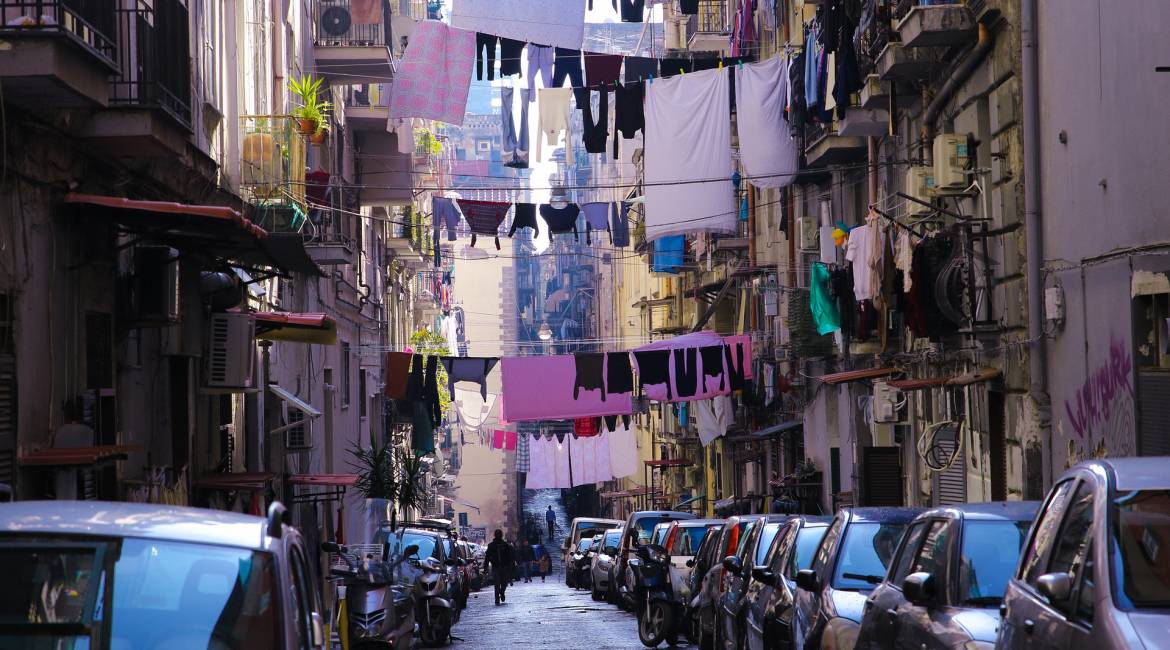Campania was once a land full of delights, and it still is today, since the nature of the landscape is varied and beautiful ..."
Campania was once a land full of delights, and it still is today, since the nature of the landscape is varied and beautiful ..."
So begins a Latin classic on the region... and the Romans knew a lot about "good life" and good food!
I grew up with the sad awareness that I had the only Campania mother who did not like to cook: you know those moving images of the student, exhausted after six hours of school and an hour-long bus journey, then goes up the steps at home , looking forward to the lunch that your loving mother has prepared for you ?!
Well I don't know that experience! When I returned home from school and there was no comforting smell, I prepared it myself!
For my mother, my aunt and my maternal grandmother, cooking was an almost useless activity, it was a waste of time; not that they did not like to eat well, if someone cooked for them they appreciated it a lot but otherwise they believed in cooking fast.
Cooking, like any domestic activity, was for them time "stolen" from culture, intellectual life, art. They were essential "housekeepers": they were not experts at dusting and polishing unless they knew (or wanted to know) whether to use the mocho or the good old floor rag; I share this aspect with them, but I love the kitchen and I love cooking!
When I tell my students the reason that naturally pushed me to love cooking, I always say jokingly "It was a question of survival", dispelling the myth of the matriarchal family where knowledge and passions are passed from woman to woman.
When we went to visit our grandparents in Avellino, I used to stay close to Raffelina, the housekeeper, as a chick stays close to the brooding hen. It was she who cooked succulent lunches from the Campania tradition for us.
Instead my grandmother was famous for what we called the "recipes without": the few times when she had to cook, she always removed some ingredient from the recipe because, she said, they were too heavy or perhaps (as my brother and I suspected) that ingredient required more preparation time.
 The most striking example is the Sartù di Riso: a magical timbale of tomato rice stuffed with peas, cheese, ragù, meatballs and boiled eggs; each family has its own variation, you can add mushrooms, sausage, ham and so on.
The most striking example is the Sartù di Riso: a magical timbale of tomato rice stuffed with peas, cheese, ragù, meatballs and boiled eggs; each family has its own variation, you can add mushrooms, sausage, ham and so on.
I only tasted real Sartù a few years ago from my uncle's wife; what Grandma did, to finish the story about her, was a baked tomato rice with cheese and peas: and yes the reason was because the ragù was greasy, the meatballs just took too long to make, the hard-boiled eggs were too heavy!! And so it was for all the recipes that were more complex!
Campania is a place that in history has been a crossroads for peoples and cultures, its cuisine has had influences from both the Spanish and the French who landed in its ports infiltrating the local cuisine with their products.
Campania cuisine, with its uniquely regional dishes, is famous all over the world.
Not only pizza and mozzarella, but also timbales and desserts of all kinds have made Campania a region with a unique culinary heritage.
The products and recipes born in this volcanic land of sun and sea are a world waiting to be discovered.
In memory of Renata and Adelina, mother and grandmother who have already traveled their life on earth, I share with you the recipe for the real Rice Sartù that I waited 40 years to eat.
With love I remember them for being the laziest cooks I have ever known and I thank them for making me a less lazy and more creative cook.





